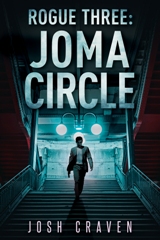Thoughts on The Great Gatsby – Minor Spoilers
I finished reading Gatsby and spent a little time thinking on it.
In sum, the central story is as golden as the era during which the book is set, but, overall, I’m not sure if the book cracks my top 10. It probably lingers just outside. I do find some irony in that our nation’s love of the book is, I believe, strongly rooted in the trait that is the flaw of the hero/antihero, Mr. Gatsby. More on that in few paragraphs, but first:
I believe the novella is the form that generally delivers the most impactful story. The format allows the writer time to develop what is important without getting distracted with other story-telling “stuff.” I like my punches slim and clean and sharp and quick. And powerful.
For example, Of Mice and Men, The Old Man and the Sea, Rita Hayworth and Shawshank Redemption, to name a few of my personal favorites. If short stories are jabs and novels are fully-wound-up uppercuts, these novellas are the straight-right-cross of storytelling.
Gatsby should have been a novella.
Much of the first half of the book describes the glam of the time period and the haughtiness of the wealthy characters. Many people adore this, which goes to my point about the love affair of this novel being largely based on the same trait that is the tragic flaw of Mr. Gatsby–an obsession with possessing that thing from the past which eluded us. For many, that thing is the past itself. I.e., the decade of decadence and excess (not the 80s, but the other one), the Jazz Age, the Roaring Twenties, a time when American was grand and golden and drunk on its good fortune. But the story, the clean, powerful punch to the face, is really in the last half.
I feel some measure of guilt about criticizing the work of a great American author who passed away nearly 80 years ago, but I’ll say what I think is true: The nut of the story is great, the writing is masterful, the structure of the novel and the way the story unfolds is not great.
Leonardo DiCaprio, whom I admire greatly as an actor, played Gatsby and described him as a “hollow man.” I have to disagree. We really don’t know enough about him to call him hollow. I see Gatsby as more of a blank canvas. Fitzgerald tells us just enough about Gatsby to convey the story he is telling and precious little more (bear in mind the opening page of the book, in which Fitzgerald warns us about being too quick to judge a man), but Gatsby’s character in the book is the constant source of gossip and speculation, and I believe many of the people in the novel saw in him what they wanted to see. But Gatsby didn’t care what image the insignificant people projected upon him. He was only concerned with how Daisy saw him. I don’t know what that makes him, but it doesn’t necessarily make him hollow. (As an aside, and in support of my view, we know Gatsby’s aspiration to be “great” far pre-dated his meeting Daisy.)
Gatsby as a (fairly) blank canvas is part of the greatness of the book. He and his story allow people to see what they want in him, to project upon Gatsby what they either aspire to be or hold in contempt. The story is universally appealing because Gatsby’s character is malleable to the complexities of each reader’s station in life and view of the world. In short, what you see in Gatsby says more about you than it does about Gatsby, and I don’t think that was lost on Fitzgerald when he wrote the book.
You May Also Like

JOMA Circle novel coming later this month
January 7, 2020